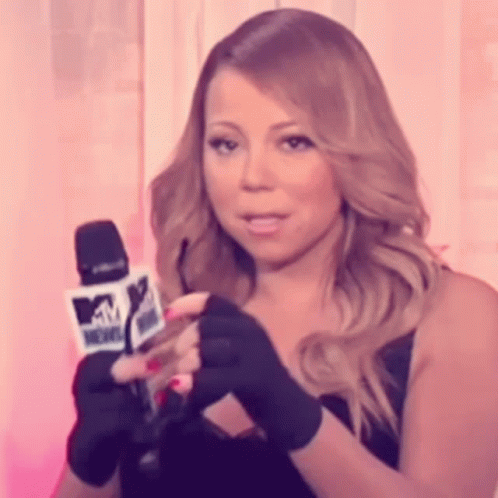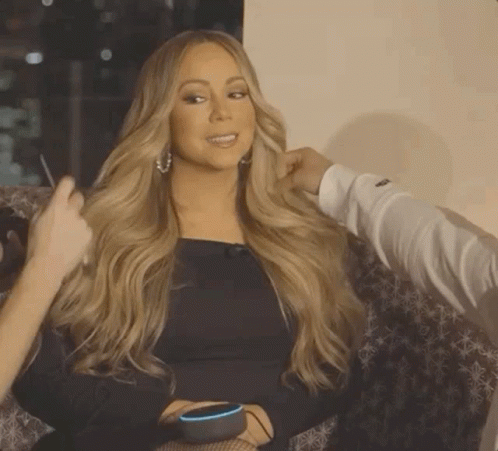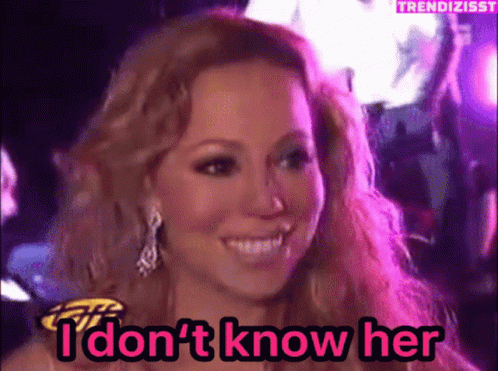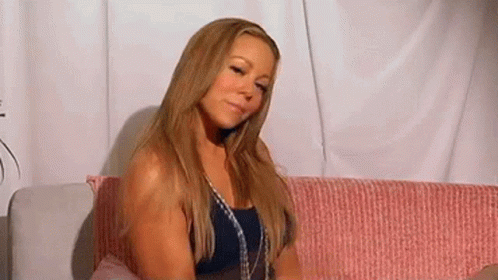Have you found a way to GET MOVING yet this fall? If so, drop it in the comments to inspire us! We’ll start Spiral Round 2 next week.
Mariah Carey is bringing her Christmas show to Pittsburgh, and this news has shattered my attention into sparkly festive little shards. But I have given myself a STERN TALKING-TO and turned off my wi-fi, and will now direct my thoughts to something nearly as fun as Mariah:
THEORY!!!
Going forward, we’re sometimes gonna deploy theory—like, fancy, academic, social/philosophical theory—because it’s FUN and USEFUL in both understanding the world and living a more thoughtful life that aligns with our values.

A Q&A, between me and my own self:
What is a theory? It’s, like, a guess?
I like this simple definition from Flinders University in Australia: “Theories are academic models or frameworks that are developed to help explain or predict certain phenomena.” You know, feminist theory, critical race theory, behavioralism, et cetera. Flinders notes that theories are “generally discipline specific and often build on or even contradict each other.”
So…a theory is a well-researched, systematic model to help us better understand the world.

I suspect you have a metaphor for this?
I do! Academic theorists have spent inordinate energy to identify the right metaphor. Is a theory like a tool? A lens? A violin? Here’s my take:
Imagine you’re at an art museum, standing in front of an enormous painting. You want to understand it, you want to take some of its power with you. But it’s huge and complex, and you simply cannot take it in. What might you do? You might decide: for the next few minutes, you’re going to stare at just this section. Or you’re only going to look at the color blue, wherever it shows up. You’re going to direct your focus, instead of letting your monkey brain swing around the painting, alighting on nothing.
Always prepared, you have brought the perfect tool for the occasion. Once you’ve chosen an area of focus, you reach into your bag, past the half-eaten Luna bar and someone else’s water bottle, and find…a toilet paper roll. You hold it like a pirate, to focus your attention on just one spot or to sweep across the painting, following one color or motif. Later, after noticing interesting things about your area of focus, you can zoom back out and look at/think about the whole painting. But your understanding of the whole will be grounded in your observation of the details.

Using a theory is like looking at the world, choosing one theme to focus on, peering through your TP roll to notice and understand just that thing, and then applying those observations back to the whole.
(Did you know you can buy these in bulk? America, what are we doing, babe?)
Wait, aren’t we theorizing all the time, subconsciously?
Kinda! None of us is digesting All Available Facts and efficiently churning them into accurate little jewels of rational wisdom. Without thinking about it, we’re constantly zooming in and out, making inferences and creating mental systems.
K, so what’s the difference between the theories I’m making and using all the time and the fancy “academic” theories you’re proposing we use?
Two differences:
- These academic/scholarly theories are well-honed and distilled. They’re sharp and careful, the product of lots of thought, study, and experience. The theories themselves are not flippant or haphazard.
- Neither is the way we use scholarly theories haphazard. We’re using them consciously and deliberately, with specific questions in mind.

Why bother? Why do I need something like critical race theory, when people need practical help? Why not just GET OUT THERE AND DO SOMETHING?
This is a false dichotomy, I think. We are “getting out there and doing something.” But I don’t want to be a bull in a china shop. I can definitely name people who are involved with great work but who make real messes, and I’m guessing you can too—people, perhaps, who regularly volunteer at the soup kitchen but are still obliviously carry a ton of racism and classism, and so deeply misunderstand what they’re seeing there. I can’t achieve perfection, but I can at least seek to understand what I’m seeing and experiencing, with the help of people who’ve spent their lives studying it.
What other excuses does your brain offer to avoid bothering with theory, and how do you counter them?
Ahem, well.
First: Theories are complicated, not usually conveyable in a sentence.
BUT: We are thoughtful people who are ready for nuance. We don’t insist on easy soundbites we can wave around like swords.
Second: Academics can—understandably, I guess—be extremely precious about their work. And I reallllly like to get things right, to avoid being judged by smart people. This is a recipe for disaster.
BUT: Any scholar or activist worth their salt wants their work to be used by ordinary people. We might misunderstand, but we can course correct. Theory is ours for the using. (Just to be sure, I recently ran these thoughts past a philosopher and a literary scholar, both of whom said HELL YES, GO!)
Third: Sometimes when you say “theory” (like “feminist theory” or “critical race theory”), people hear “MEAN RULE” (like “all men are terrible” or “every institution is hopelessly, permanently racist so we must burn it all down”).
BUT: We don’t have to worry about those people. If they’re concerned, we can gently explain that a theory isn’t a rule; it’s a toilet paper roll.
Fourth: Theorists unfortunately say things like “the destructive legacy of a poststructuralist insistence on fundamental discontinuity” ?!?!?!?!

BUT: Since we’re not in the ivory tower, we don’t need the jargon. We’ll use quick-and-dirty versions of big theory.
I think that covers it.
This is awfully abstract. We’re…going somewhere with this, right? Big FOR WHAT Energy, and all that?
Yes, ma’am. As the brilliant bell hooks notes in her defense of theory (and its connection with practice): “Theory is not inherently healing, liberatory, or revolutionary. It fulfills this function only when we ask that it do so and direct our theorizing towards this end.”
Big FOR WHAT Energy = directing our theorizing toward the ends of healing, liberation, and revolution.
Next week I’m busting out my recent-favorite theory, which I find extremely useful, and which will help us as we start spiral round 2.
For now: Share in the comments what you're up to this fall!
[Q&A format, BTW, straight-up stolen from Damon Young]


Member discussion: